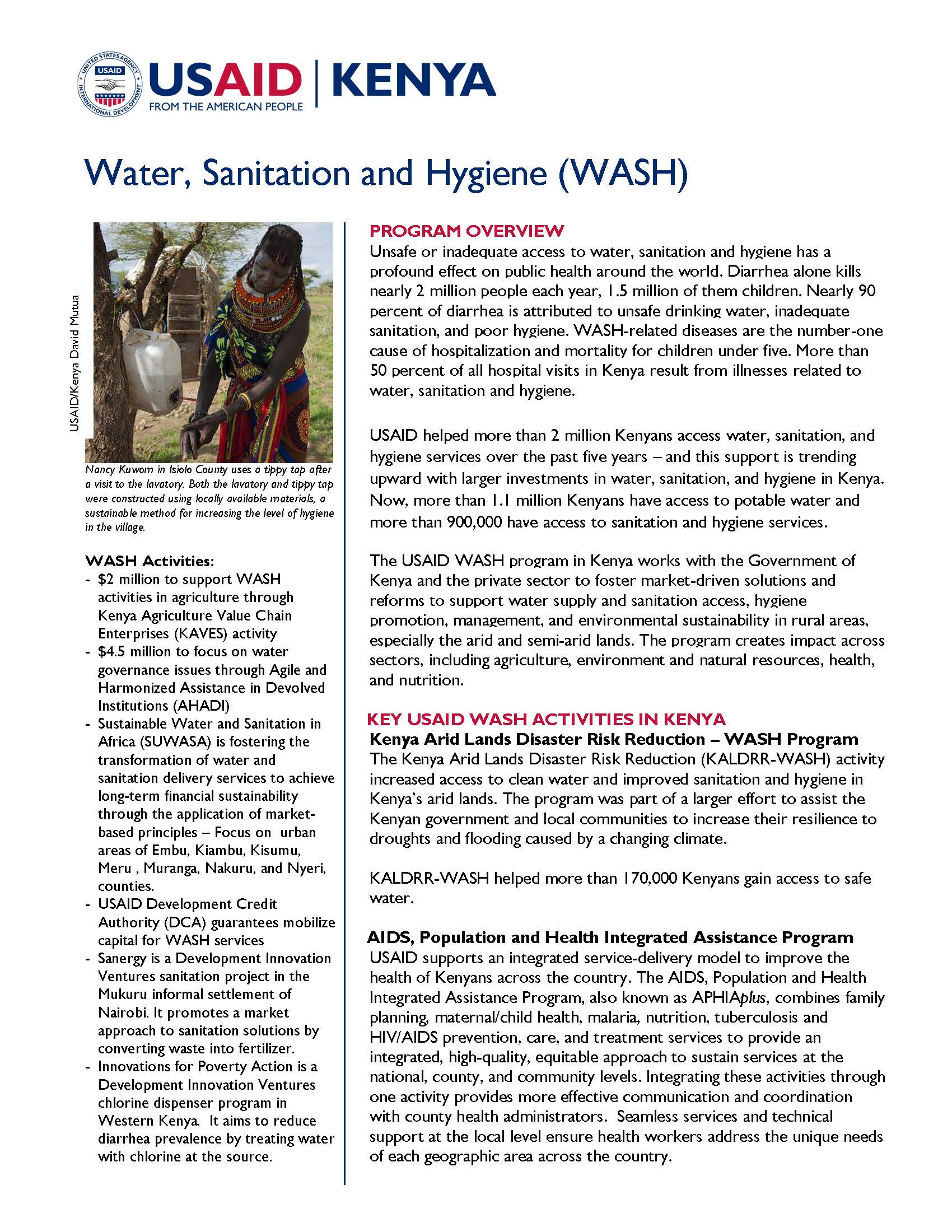Unsafe or inadequate access to water, sanitation and hygiene has a profound effect on public health around the world. Diarrhea alone kills nearly 2 million people each year, 1.5 million of them children. Nearly 90 percent of diarrhea is attributed to unsafe drinking water, inadequate sanitation, and poor hygiene. WASH-related diseases are the number-one cause of hospitalization and mortality for children under five. More than 50 percent of all hospital visits in Kenya result from illnesses related to water, sanitation and hygiene.
USAID helped more than 2 million Kenyans access water, sanitation, and hygiene services over the past five years – and this support is trending upward with larger investments in water, sanitation, and hygiene in Kenya. Now, more than 1.1 million Kenyans have access to potable water and more than 900,000 have access to sanitation and hygiene services.
The USAID WASH program in Kenya works with the Government of Kenya and the private sector to foster market-driven solutions and reforms to support water supply and sanitation access, hygiene promotion, management, and environmental sustainability in rural areas, especially the arid and semi-arid lands. The program creates impact across sectors, including agriculture, environment and natural resources, health, and nutrition.








Comment
Make a general inquiry or suggest an improvement.